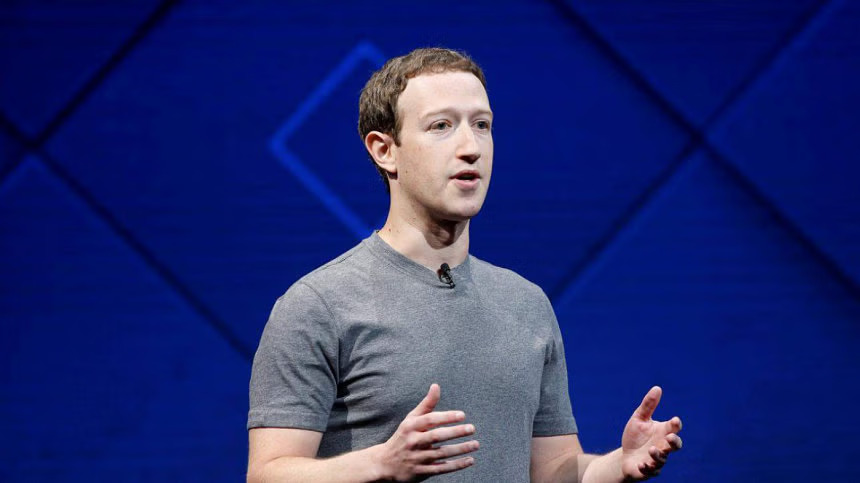Meta Platforms Inc., under the leadership of CEO Mark Zuckerberg, is making headlines with plans to significantly ramp up investments in artificial intelligence (AI) and other cutting-edge technologies. This strategic decision comes amidst a backdrop of ongoing struggles within the company’s core advertising business, which has traditionally provided the majority of its revenue.
The Investment Strategy
During the recent third-quarter earnings call, Zuckerberg expressed his commitment to investing heavily in AI infrastructure, the metaverse, and even AI-powered glasses. These investments, he believes, are vital for Meta’s long-term growth, despite the current challenges faced in the advertising sector. He emphasized that the revenue generated from Meta’s ads, while not meeting Wall Street expectations, will help support these ambitious projects.
Despite the optimism, Meta’s shares took a hit, falling more than 4% in response to the announcement. Zuckerberg reassured investors that AI advancements are positively impacting various aspects of the business, from enhancing ad targeting to creating innovative services. “We’re seeing AI have a positive impact on nearly all aspects of our work,” he stated, reflecting a belief that these technologies can accelerate growth.

The Reality Labs Division
One of the most intriguing aspects of Meta’s investment strategy is its Reality Labs division, which focuses on developing AI and augmented reality technologies. However, this division is also facing significant financial losses, reporting a staggering $4.4 billion operating loss in the last quarter. As costs are projected to approach nearly $100 billion this year, the pressure mounts on the core advertising business to foot the bill for these ambitious endeavors.
Zuckerberg noted that the budget for 2025 is still being finalized, indicating that while the vision is clear, the financial roadmap remains a work in progress. The expectation is that losses from Reality Labs will widen meaningfully this year, but Zuckerberg is undeterred, seeing the long-term potential in the metaverse and related technologies.
The Impact of AI on Advertising and User Engagement
Despite the challenges, AI has become a cornerstone of Meta’s business strategy. The company has rolled out several AI-powered products, including advanced language models that enhance chatbots and content recommendations. This pivot towards AI has not only improved user experience but has also led to tangible results in user engagement. For instance, the AI-driven recommendations have resulted in an 8% increase in time spent on Facebook and a 6% increase on Instagram.
In practical terms, this means that users are spending more time engaging with content, which directly benefits advertisers. Over the past month alone, more than one million advertisers utilized Meta’s generative AI tools, leading to the creation of over 15 million ads. This surge in AI usage has also led to a reported 7% increase in conversions for businesses leveraging these tools.
Zuckerberg’s vision extends beyond mere improvements in existing services. He has expressed a desire to create an entirely new category of content—AI-generated or AI-summarized material that could redefine how users interact with the platform. This ambition indicates a broader strategy to not only compete with other social media giants but to innovate in ways that could set Meta apart.
Financial Performance: A Mixed Bag
Meta’s latest earnings report reflects a complex picture. While the company reported sales of $40.6 billion for the quarter ending September 30, a notable increase from the prior year, it still fell short of some expectations. Analysts had anticipated revenue of approximately $40.3 billion, indicating a slight upward trajectory but highlighting the pressure on the advertising segment.
Despite these challenges, Meta managed to exceed profit expectations, posting a third-quarter profit of $6.03 per share, significantly higher than the forecast of $5.25. This financial performance is attributed to the increased time users spend on the platform, driven in part by the AI enhancements.
To put this in perspective, Meta’s stock has performed remarkably well this year, rising over 67% by the end of the earnings call, making it one of the best-performing stocks in the S&P 500. However, this growth comes at a cost. Zuckerberg reiterated the need for substantial investment in AI infrastructure, suggesting that while the returns may be promising, the initial outlays will be significant.
User Growth and Engagement Metrics
Alongside financial metrics, user engagement has shown promising signs of growth. Daily active users across Meta’s platforms reached 3.29 billion, marking a 5% increase, while monthly active users climbed to 3.96 billion, reflecting a 6% increase. This uptick in user engagement is crucial as it provides a solid foundation for advertisers and indicates the effectiveness of the AI-driven enhancements.
Zuckerberg also pointed to the broader trend in digital advertising, as competitors like Alphabet and Snap have reported gains driven by AI tools. With the holiday season approaching, analysts anticipate increased ad spending, which could further bolster Meta’s revenue streams.
Looking Ahead: The Road to AI Integration
Zuckerberg’s ambitious plans for Meta extend beyond immediate profits and user engagement. He envisions a future where users can seamlessly engage with a digital universe—the metaverse—enhanced by augmented reality technologies like the recently unveiled Orion glasses. These glasses, which project images onto the physical world, are positioned as potential rivals to smartphones, signaling a radical shift in how technology is integrated into everyday life.
Despite the excitement surrounding these projects, some challenges remain. Meta has faced criticism over its approach to content moderation and user experience, particularly with recent algorithm changes that have reduced the visibility of less popular videos. This has sparked backlash from users who feel that the quality of content is being compromised.
Moreover, while Zuckerberg has been a vocal proponent of AI, urging collaboration between the tech sector and government for innovation, Meta has notably opted out of signing the new AI Pact—a commitment from over 100 companies to promote safe and trustworthy AI development. This decision reflects a complex balancing act between innovation and ethical considerations.

A Future Driven by AI
As Meta continues to navigate the landscape of digital advertising and social media, its focus on AI and advanced technologies positions it as a formidable player in the industry. The potential for AI to enhance user experience, increase engagement, and drive revenue is clear, but it comes with risks and challenges.
Zuckerberg’s vision for Meta is ambitious, aiming to transform the company from a traditional social media platform into a leader in AI innovation. The success of this strategy will depend not only on financial performance but also on how well Meta can adapt to the evolving expectations of users and advertisers alike.
In a rapidly changing digital landscape, one thing is certain: Meta’s journey towards AI integration will be one to watch as it seeks to redefine the future of social interaction and digital engagement.
Copyright©dhaka.ai
tags: Artificial Intelligence, Ai, Dhaka Ai, Ai In Bangladesh, Ai In Dhaka, Future of AI, Artificial Intelligence in Bangladesh, Meta



